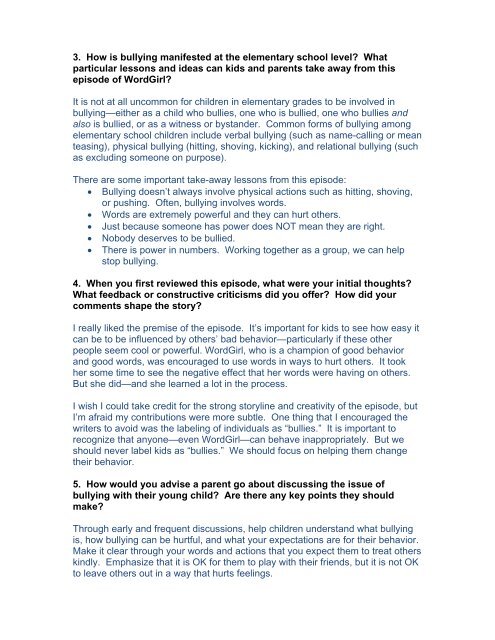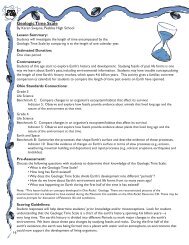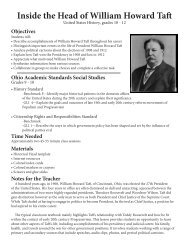Bullying Q & A with Dr. Susan P. Limber Special advisor for - CET
Bullying Q & A with Dr. Susan P. Limber Special advisor for - CET
Bullying Q & A with Dr. Susan P. Limber Special advisor for - CET
You also want an ePaper? Increase the reach of your titles
YUMPU automatically turns print PDFs into web optimized ePapers that Google loves.
3. How is bullying manifested at the elementary school level? Whatparticular lessons and ideas can kids and parents take away from thisepisode of WordGirl?It is not at all uncommon <strong>for</strong> children in elementary grades to be involved inbullying—either as a child who bullies, one who is bullied, one who bullies andalso is bullied, or as a witness or bystander. Common <strong>for</strong>ms of bullying amongelementary school children include verbal bullying (such as name-calling or meanteasing), physical bullying (hitting, shoving, kicking), and relational bullying (suchas excluding someone on purpose).There are some important take-away lessons from this episode: <strong>Bullying</strong> doesn’t always involve physical actions such as hitting, shoving,or pushing. Often, bullying involves words. Words are extremely powerful and they can hurt others. Just because someone has power does NOT mean they are right. Nobody deserves to be bullied. There is power in numbers. Working together as a group, we can helpstop bullying.4. When you first reviewed this episode, what were your initial thoughts?What feedback or constructive criticisms did you offer? How did yourcomments shape the story?I really liked the premise of the episode. It’s important <strong>for</strong> kids to see how easy itcan be to be influenced by others’ bad behavior—particularly if these otherpeople seem cool or powerful. WordGirl, who is a champion of good behaviorand good words, was encouraged to use words in ways to hurt others. It tookher some time to see the negative effect that her words were having on others.But she did—and she learned a lot in the process.I wish I could take credit <strong>for</strong> the strong storyline and creativity of the episode, butI’m afraid my contributions were more subtle. One thing that I encouraged thewriters to avoid was the labeling of individuals as “bullies.” It is important torecognize that anyone—even WordGirl—can behave inappropriately. But weshould never label kids as “bullies.” We should focus on helping them changetheir behavior.5. How would you advise a parent go about discussing the issue ofbullying <strong>with</strong> their young child? Are there any key points they shouldmake?Through early and frequent discussions, help children understand what bullyingis, how bullying can be hurtful, and what your expectations are <strong>for</strong> their behavior.Make it clear through your words and actions that you expect them to treat otherskindly. Emphasize that it is OK <strong>for</strong> them to play <strong>with</strong> their friends, but it is not OKto leave others out in a way that hurts feelings.




